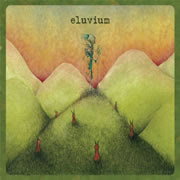 Like fellow traveler Sylvain Chauveau, Bostonian Keith Kenniff is a sometimes-electronics artist (recording as Helios) who spends moonlight hours at the piano. Also like Chauveau he has just released an e.p. that illuminates the roots and branches of minimalism. But Kenniff’s main branch is perhaps as much miniaturist as minimalist. The eleven brief tracks feature cascading repetitions and overlapping movements that hearken to the schools of Riley, Glass and Feldman. Each is a delightful clockwork that appears fully formed only to vanish wisp-life leaving the next to take up the space. The inside piano is close miced, creating an intimacy with the physical presence of the music and revealing tiny details created with each impact. The single word titles are also linked into the sentence “Leading them from light to shadow they will see as one,” and this also creates another layer of meaning with the music. The final three pieces settle into a quieter lull that concentrates as much on the resonance and sustain as the notes themselves, like a breath of satisfaction slowly released.
Like fellow traveler Sylvain Chauveau, Bostonian Keith Kenniff is a sometimes-electronics artist (recording as Helios) who spends moonlight hours at the piano. Also like Chauveau he has just released an e.p. that illuminates the roots and branches of minimalism. But Kenniff’s main branch is perhaps as much miniaturist as minimalist. The eleven brief tracks feature cascading repetitions and overlapping movements that hearken to the schools of Riley, Glass and Feldman. Each is a delightful clockwork that appears fully formed only to vanish wisp-life leaving the next to take up the space. The inside piano is close miced, creating an intimacy with the physical presence of the music and revealing tiny details created with each impact. The single word titles are also linked into the sentence “Leading them from light to shadow they will see as one,” and this also creates another layer of meaning with the music. The final three pieces settle into a quieter lull that concentrates as much on the resonance and sustain as the notes themselves, like a breath of satisfaction slowly released.Western Vinyl
















































